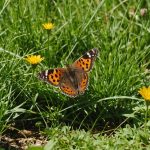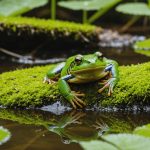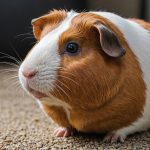Importance of Grooming for Long-Haired Ferrets
Grooming long-haired ferrets is essential for both their coat maintenance and overall well-being. Regular grooming plays a vital role in ensuring coat health by removing dirt and debris, which prevents matting. When left unchecked, mats can lead to skin irritations and infections. Through consistent grooming, these issues can be effectively prevented, promoting a healthier coat.
The benefits of grooming extend beyond physical health. Regular grooming sessions provide a unique bonding opportunity between ferrets and their owners. As owners groom their pets, this physical interaction helps build trust and strengthens their relationship. These sessions also allow for close inspection of the ferret’s coat and skin, facilitating early detection of any potential issues.
Also read : What are the benefits of adopting a senior pet compared to a puppy?
Grooming allows for maintaining a smooth, shiny coat, reducing the risk of hair breakage and split ends. It supports the ferret’s comfort and aesthetics, giving them the best possible appearance. Long-haired ferrets particularly benefit as their coats require more intensive care to manage length and prevent complications.
In summary, attention to grooming routines ensures long-haired ferrets remain healthy, with owners reaping the rewards of a stronger bond and a more physically appealing and content pet.
Topic to read : How can you make a DIY puzzle feeder for your pet bird?
Essential Grooming Tools and Supplies
Grooming long-haired ferrets requires the right grooming tools for ferrets to ensure effective maintenance of their luxurious coats. Selecting the appropriate combs and brushes is crucial. Let’s explore suitable options for these charming creatures.
Types of Brushes Suitable for Long-Haired Ferrets
For ferrets with long hair, using slicker brushes can be very beneficial. Slicker brushes are adept at removing loose fur and preventing mats, keeping the coat tangle-free. A bristle brush can also be useful to smoothen the coat surface, adding a glossy finish.
Recommended Combs for Detangling
Metal combs with long, sturdy teeth are optimal for detangling. Opt for a grooming comb that efficiently navigates through knots without causing discomfort. This ensures thorough grooming while minimizing breakage. Regular combing helps maintain coat integrity and prevents unnecessary shedding.
Other Essential Grooming Supplies
In addition to combs and brushes, several other grooming supplies are vital. High-quality shampoos and conditioners formulated for ferrets help in cleansing and maintaining coat health. Don’t forget nail clippers and ear cleaning tools; these ensure comprehensive hygiene and contribute to the overall well-being of your furry friend.
Bathing Techniques for Long-Haired Ferrets
Maintaining ferret hygiene involves more than just regular grooming. Bathing long-haired ferrets is essential for optimal coat health, but the frequency of baths should be monitored carefully. Over-bathing can lead to skin dryness and irritation. Typically, once a month is sufficient, or as needed, if the ferret becomes especially dirty.
Steps for Properly Bathing a Ferret
When it’s time for a bath, begin by gathering all necessary supplies, including a shampooing ferrets product specially formulated for their delicate skin. Fill the basin with lukewarm water, ensuring it’s not too deep, as ferrets can become anxious. Gently introduce them to the water, using a calm voice to reassure them.
Apply the shampoo, massaging it into the fur thoroughly, while avoiding eyes and ears. Rinse completely to eliminate any residue, which can cause coat issues. Lastly, wrap the ferret in a towel to dry them, avoiding the use of hair dryers as they can be too hot.
Choosing the Right Shampoo
Picking the right shampoo is crucial. Opt for those designed specifically for bathing long-haired ferrets to maintain natural oils and prevent skin problems. This choice aids in supporting not only their hygiene but also their coat’s aesthetics and comfort.
Common Coat Issues and Solutions
Long-haired ferrets face unique coat problems that require careful attention. One common issue is matting, which occurs when fur tangles and clumps together. To tackle this, regular grooming long-haired ferrets with appropriate tools like slicker brushes and combs is essential. Thorough brushing helps untangle knots and maintain a smooth, healthy coat.
Excessive shedding is another concern for ferret owners. Shedding can be managed through routine coat maintenance, ensuring excess fur is removed through consistent grooming sessions. This practice prevents hair from accumulating and maintains a tidy appearance, enhancing overall coat maintenance.
Skin conditions, such as dryness and irritation, may arise due to environmental factors or inadequate care. Keeping your ferret’s skin healthy is crucial for a lustrous coat. Use quality grooming supplies tailored for ferrets, like moisturizing shampoos, to support skin health.
If these coat issues persist, it’s recommended to consult a veterinarian for professional advice. Understanding and addressing these challenges ensures your ferret remains comfortable and maintains its beautiful, glossy coat. By proactively recognising and resolving coat problems, owners can enjoy the full grooming benefits for their long-haired companions.
Dietary Recommendations for Healthy Coats
Feeding your long-haired ferret a proper ferret diet significantly impacts their coat’s appearance and health. Ensuring an adequate intake of nutrients is crucial.
Importance of High-Quality Protein
Ferrets thrive on a diet rich in high-quality protein, as it supports both overall health and nutrition for coat health. Look for ferret foods with a high proportion of animal-based ingredients. Protein from sources like chicken, lamb, or turkey is essential for maintaining a lustrous coat and robust health.
Supplements for Coat Health
Consider incorporating supplements to bolster coat maintenance. Omega-3 and Omega-6 fatty acids are beneficial, as they support skin health and create a glossy fur appearance. When selecting supplements, prioritize those tailored specifically for ferrets to ensure safety and effectiveness.
Foods to Avoid
Avoid foods high in grains and artificial additives, as these can lead to poor coat quality and health issues. An inadequate diet may result in hair loss, dull fur, and skin irritations. Be cautious with treats and commercial foods that are not specifically designed for ferrets. Conscious dietary choices lead to substantial grooming benefits, keeping your ferret’s coat vibrant and healthy.
Visual Aids and Checklists for Ferret Care
When it comes to ferret grooming, a well-organized ferret grooming checklist can be a game-changer. A well-structured checklist helps ensure all necessary steps are taken to keep these furry companions healthy. By breaking down grooming routines into manageable tasks, owners can track grooming efforts efficiently.
Importance of Visual Guides
Creating visual aids for ferret care provides a valuable reference for both new and experienced ferret owners. These guides often include images and step-by-step instructions, clarifying the sometimes intricate grooming techniques required for grooming long-haired ferrets. Having a clear visual guide can reduce uncertainty, boosting confidence in handling grooming tools and supplies.
Designing Effective Grooming Checklists
To design effective grooming checklists, include essential tasks like brushing, bathing, and nail trimming. Tailor checklists to the specific needs of long-haired ferrets, focusing on coat maintenance and avoiding common coat issues. By maintaining a routine, ferret owners can better anticipate and manage potential grooming challenges, ensuring that their pets enjoy all the grooming benefits intended for their overall well-being.
Visual Aids and Checklists for Ferret Care
When embarking on the journey of ferret grooming, incorporating a thorough ferret grooming checklist can greatly streamline your routine. By organising tasks such as brushing, bathing, and nail trimming, owners can ensure that no grooming step is overlooked, contributing to their furry friend’s well-being.
Importance of Visual Guides
Visual aids are invaluable, especially for novice ferret owners. Creating visual guides for grooming techniques provides clarity and reduces any anxiety associated with grooming long-haired ferrets. Such guides are often illustrated with step-by-step instructions, helping owners to navigate the grooming process with confidence. These visuals demystify complex procedures, making care tasks accessible and manageable.
Designing Effective Grooming Checklists
When designing a grooming checklist, focus on recurring tasks tailored for long-haired ferrets. Include daily and weekly routines to ensure every aspect of coat maintenance is addressed. By maintaining this structured approach, ferret owners can better anticipate coat problems and address them proactively. Moreover, with consistent tracking, any patterns that may lead to coat issues can be identified early. This methodical practice ensures ferrets benefit from grooming and remain happy and healthy.
FAQs about Caring for Long-Haired Ferrets
Engaging in ferret care can lead to many common ferret questions. Let’s explore some grooming tips to enhance understanding.
General Care FAQs
-
What is the ideal frequency for grooming long-haired ferrets?
Grooming long-haired ferrets should be done at least once a week. Regular sessions prevent matting and skin issues, keeping the coat healthy.
-
How can I prevent my ferret from getting bored during grooming?
Incorporate toys and treats. A playful approach makes routine tasks enjoyable, reinforcing bonding.
Grooming-Specific Questions
-
Which grooming tools are necessary for long-haired ferrets?
Essential tools include combs and brushes, like slicker brushes for detangling and bristle brushes for smoothing. Complement with ferret-specific grooming supplies.
-
How do I check coats for possible problems?
Examine for knots, excess shedding, and irritation, addressing these promptly through tailored ferret grooming solutions.
Addressing Coat Health Concerns
-
What nutritional components support coat health?
A ferret diet rich in proteins, especially from ferret foods with animal-based ingredients, supports nutrition for coat health.
-
Is hair loss normal in ferrets?
Moderate shedding is typical, but abrupt hair loss warrants a vet visit to address potential coat problems in ferrets.











